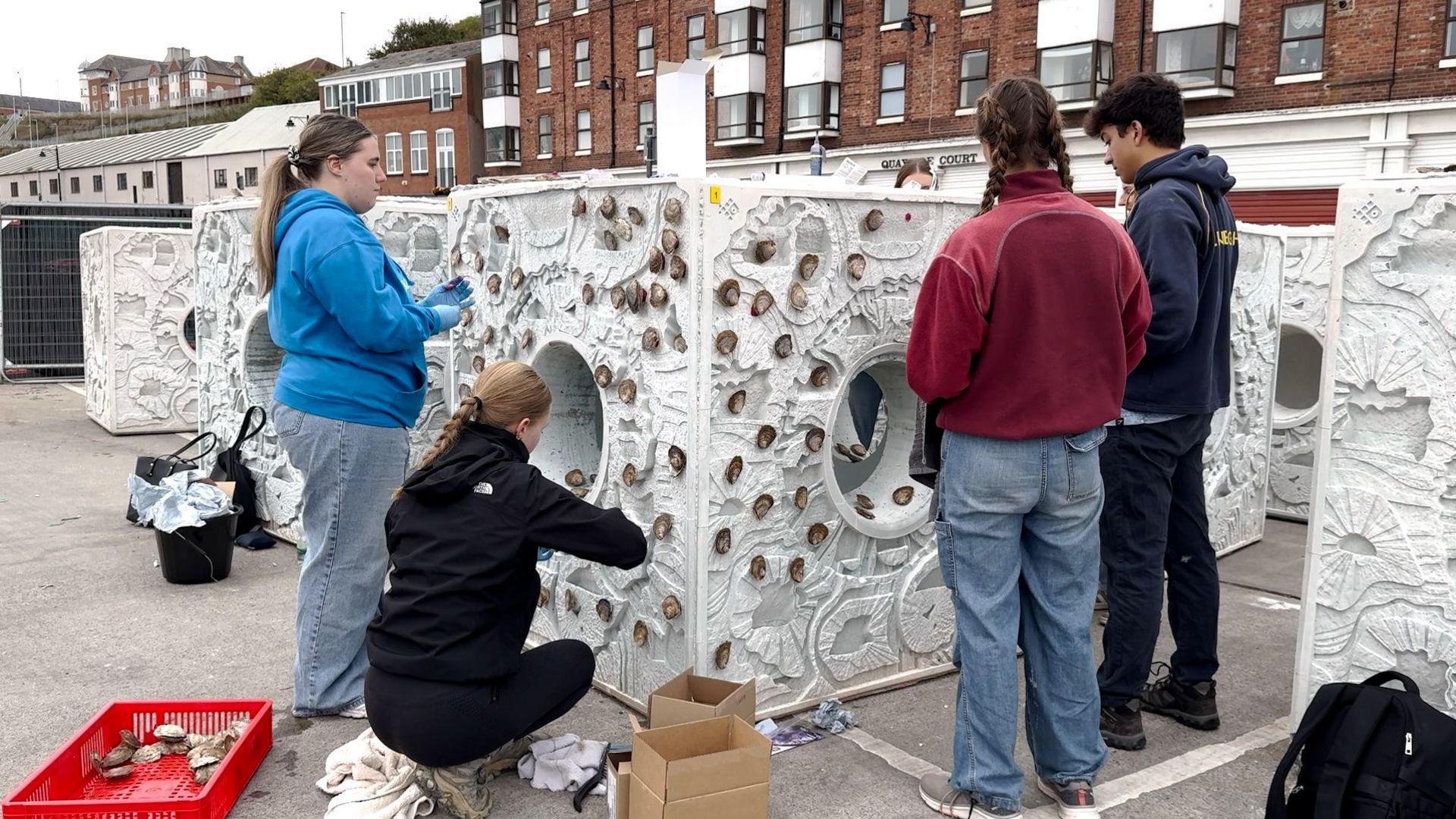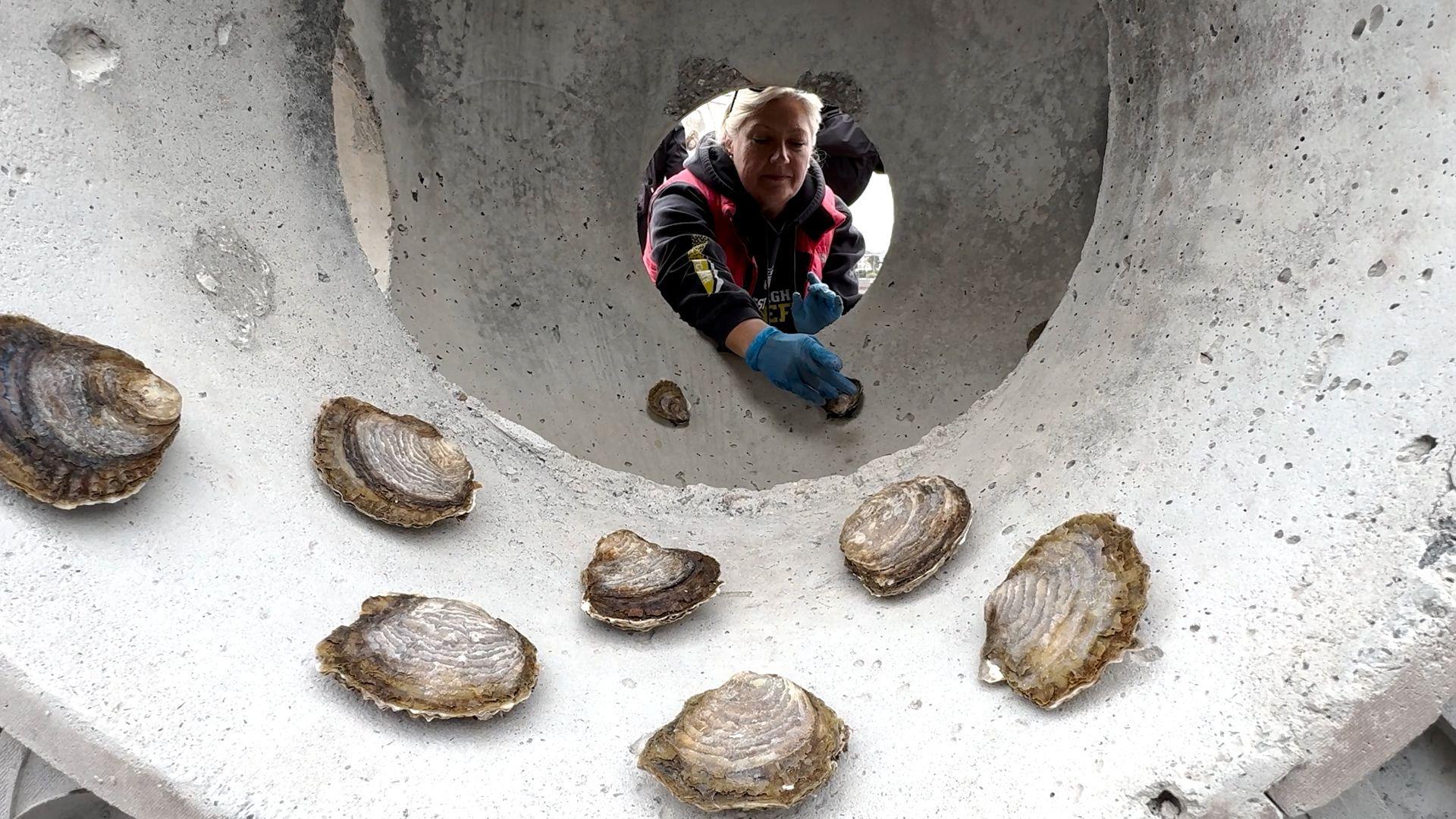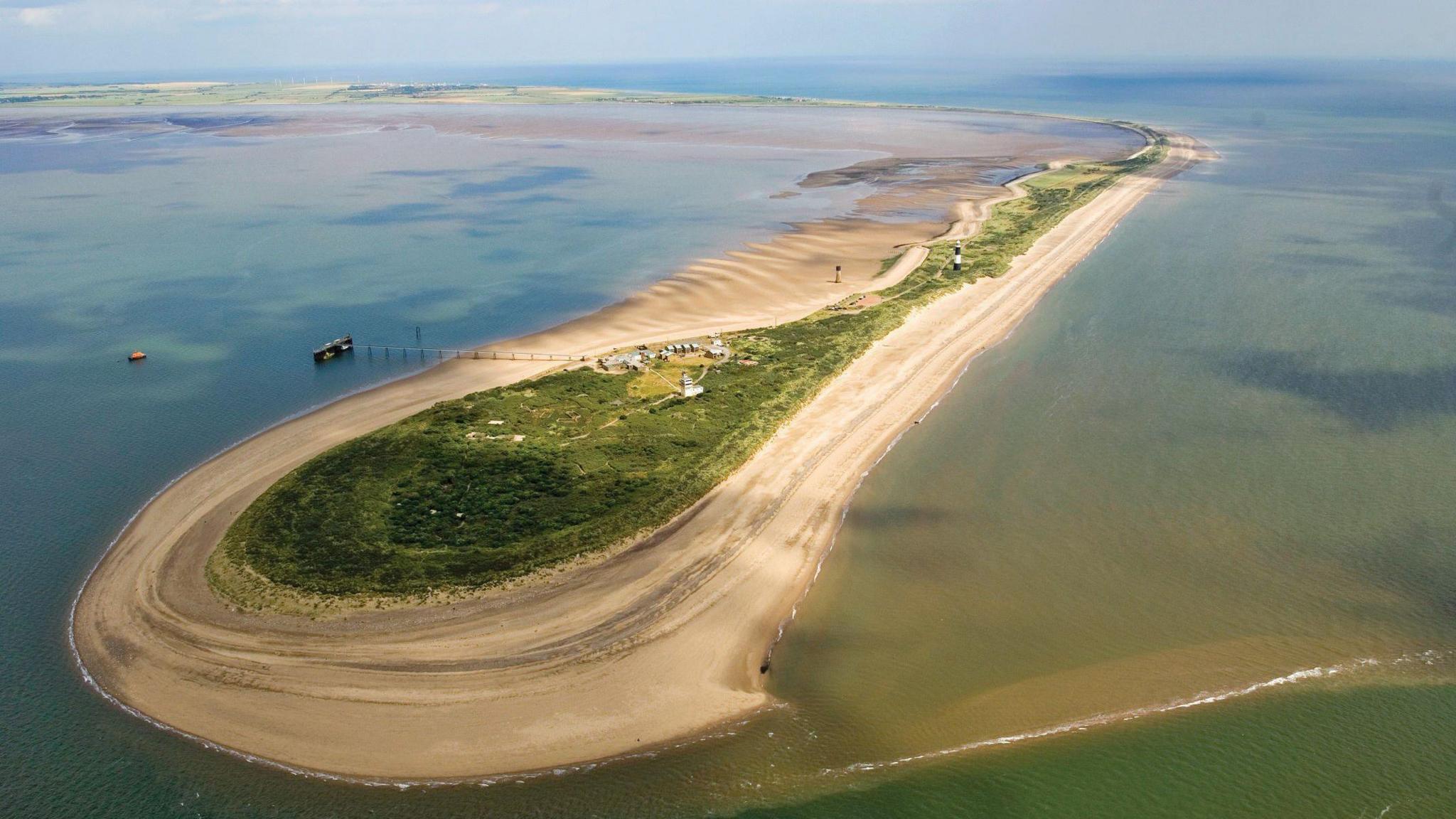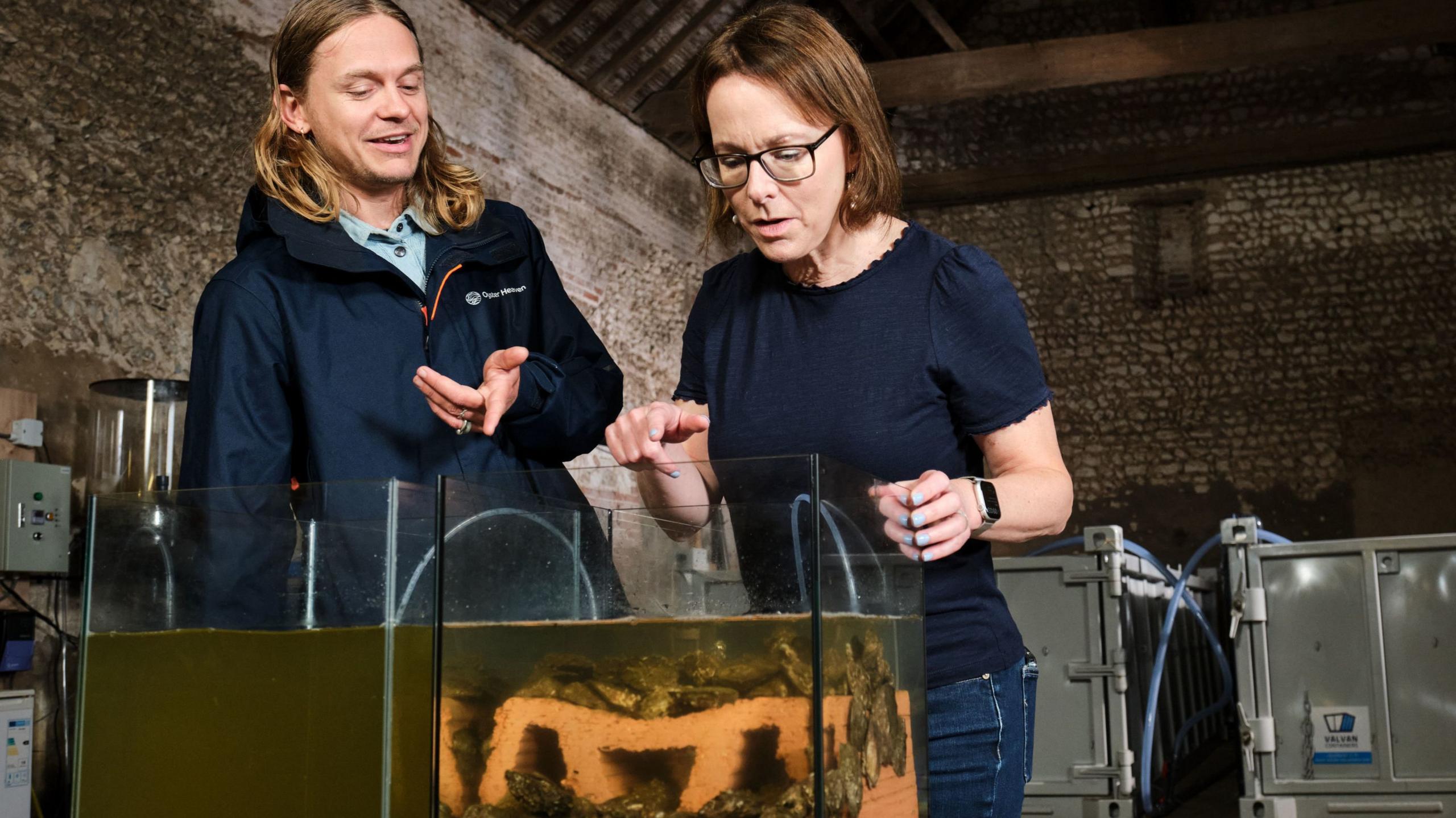Oyster restoration project 'breaking new ground'

Nearly 200 local volunteers helped prepare the oysters for deployment
- Published
A conservation project is "breaking new ground" after cubes housing thousands of oysters were deployed into the North Sea.
About 20 oyster reef cubes containing 4,000 European native oysters were released off the north-east coast in a bid to revive the species in the area.
Conservationists from the Zoological Society of London (ZSL) and nature charity Groundwork hope the project will help create a self-sustaining, functioning oyster reef in the region and support restoration efforts elsewhere in the UK.
Oyster nurseries have been installed in Sunderland and reef deployments have taken place off the coast at Whitburn, South Tyneside.
Dr Ashleigh Tinlin-Mackenzie, marine ecology technical lead for Tyne and Wear at Groundwork North East and Cumbria, said the project was "breaking new ground".
She said the North-East coast was unique because it was quite exposed and had frequent storms.
"That's been something that we've had to pivot around and to explore these more innovative methods of using these reef cubes," she said.
"It's been nice to try something a little bit different that hasn't really been done before in the UK at this scale."

The project aims to restore oyster reefs in north-east England
The team are trialling the use of cubes as ballasts to secure the native oysters to the seabed.
Each oyster reef cube is made from 6-tonnes of a robust, seawater-resistant and carbon-neutral alternative to concrete.
The blocks are engraved with ridges and textures to mimic natural marine surfaces and provide shelter for other species.
Native oyster reefs disappeared from the north-east region more than a century ago, while habitat loss, over-harvesting, pollution and disease have led to a decline in numbers of more than 95% across the UK since the 1800s, Celine Gamble, ZSL's manager on the project, said.
"Given the severe decline of oysters and other marine habitat and biodiversity, I think we've got a really exciting opportunity to trial different methods and have a better impact down the line," Ms Gamble added.
"The oyster reef cubes have been selected to help provide a stable environment for the oysters during storms, and we hope that over time they'll also attract fish, sponges and crustaceans to the reefs as we work to restore this lost ecosystem."

It is hopes the cubes will help protect the oysters from storms
Nearly 200 local volunteers took part in preparing the oysters for restoration.
The North-East was selected because of its oysters restoration potential, but also its historic links to the species.
Oysters were a large part of local culture in the 1800s, with oyster saloons in Tynemouth and oyster specialist fish markets in South Shields.
There was also an oyster bar in Durham in 1901 and several oyster merchants in Newcastle in 1863.
"There is that cultural connection to oysters here and I think the public have forgotten that over time because it was a long time ago, so we're trying to bring that back as well," Dr Tinlin-Mackenzie said.
The project is funded by the Stronger Shores Partnership and led by South Tyneside Council, with funding from the Environment Department.
Follow BBC North East on X, external, Facebook, external, Nextdoor and Instagram, external.
Get in touch
Do you have a story suggestion for BBC North East & Cumbria?
Related topics
- Published17 July

- Published11 September
